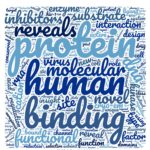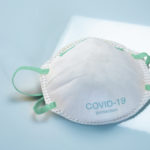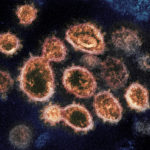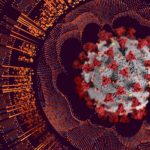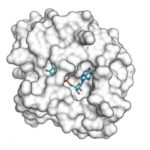A team led by Paul Adams, director of Berkeley Lab’s Molecular Biophysics and Integrated Bioimaging Division, developed the Phenix software suite, now used around the world to automate key steps in the structural biology workflow. Adams spoke with the Strategic Communications about the software’s origins and how structural biologists leapt into action to combat the pandemic.
This Anti-COVID Mask Breaks the Mold
In the early days of the pandemic, amidst all the uncertainty, one thing was for sure: N95 masks – the personal protective respiratory devices that filter out viruses, bacteria, and wildfire smoke – were in short supply. So when materials scientists Jeff Urban and Peter Hosemann heard that a local HMO needed advice on N95 alternatives, they immediately knew what to do: Make a better mask.
Urban and Hosemann were responding to a Berkeley Lab-wide call for research ideas in support of fighting COVID-19, which ultimately led to their receiving DOE support through the National Virtual Biotechnology Laboratory (NVBL), a consortium of DOE National laboratories with core capabilities relevant to the threats posed by COVID-19, and funded under the Coronavirus Aid, Relief, and Economic Security (CARES) Act.
Videos Showcase Biosciences’ Response to COVID-19
For the past several months, teams of bioscientists have utilized Berkeley Lab’s world-class research facilities to contribute to the national response to COVID-19, resulting in a wide range of promising research. Four videos showcase researcher contributions from across the Biosciences Area, which aim to help address some of the many scientific challenges posed by the pandemic.
Clues to COVID-19 Treatments Could Be Hiding in Existing Data – These Scientists Want to Find Them
Under a special project launched in May, a Berkeley Lab–led team of computing and bioinformatics experts is developing a platform that consolidates disparate COVID-19 data sources and uses the unified library to make predictions—about potential drug targets, for example.
Building Blocks for COVID-19 Antiviral Drugs Identified in Rapid Study
Members of the UC San Francisco Quantitative Bioscience Institute Coronavirus Research Group (QCRG), in collaboration with Berkeley Lab and SLAC National Accelerator Laboratory (SLAC), have identified key chemical building blocks for an eventual antiviral drug against SARS-CoV-2, the virus that causes COVID-19. The newly identified compounds bind to an enzyme produced by the virus, called the “macro domain,” which is known to be crucial for the virus’s ability to replicate in human cells. The authors are writing up a formal manuscript describing the results for submission to a peer-reviewed academic journal, but also published their data directly online on July 1 to accelerate global efforts to fight the coronavirus pandemic.
Was this page useful?


